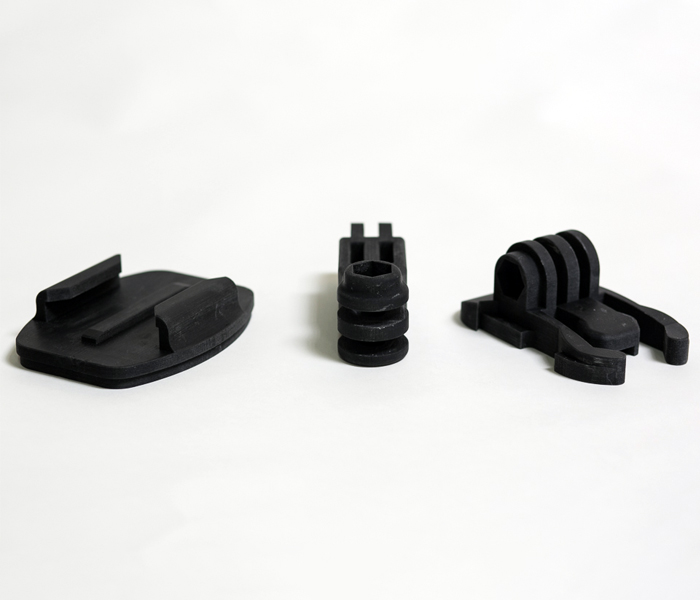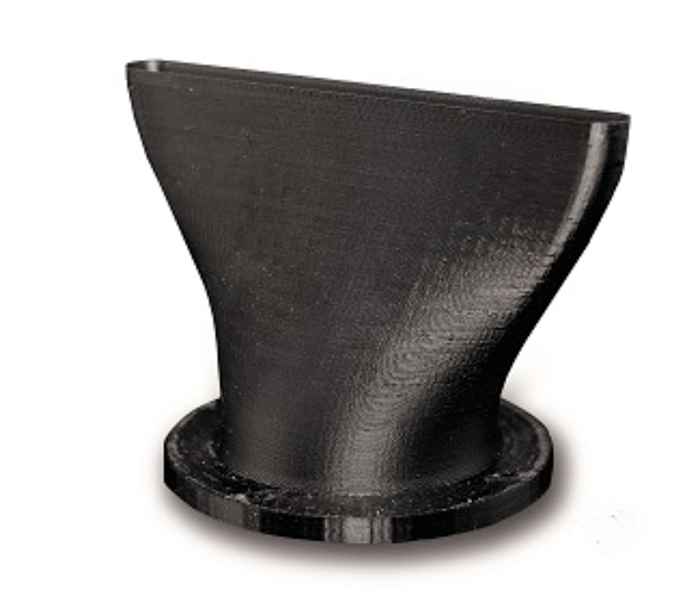This material combines the best features of two leading thermoplastics— the strength and heat resistance of polycarbonate (PC) and the flexibility of ABS. With its superior mechanical properties, PC-ABS is ideal for a wide range of applications, from conceptual modeling and functional prototypes to manufacturing tools and end-use parts.
Key Features:
- Superior Strength: Offers robust mechanical performance, making it suitable for parts that need to withstand high stress and mechanical loads.
- Impact Resistance: Provides the best impact resistance of any FDM material, ensuring durability in tough applications.
- Heat Resistance: With excellent heat resistance, PC-ABS can perform well in demanding environments where elevated temperatures are a factor.
- Flexibility: Combines the flexibility of ABS, allowing for parts that require a certain level of give without compromising strength.
Color Option: Opaque Black

